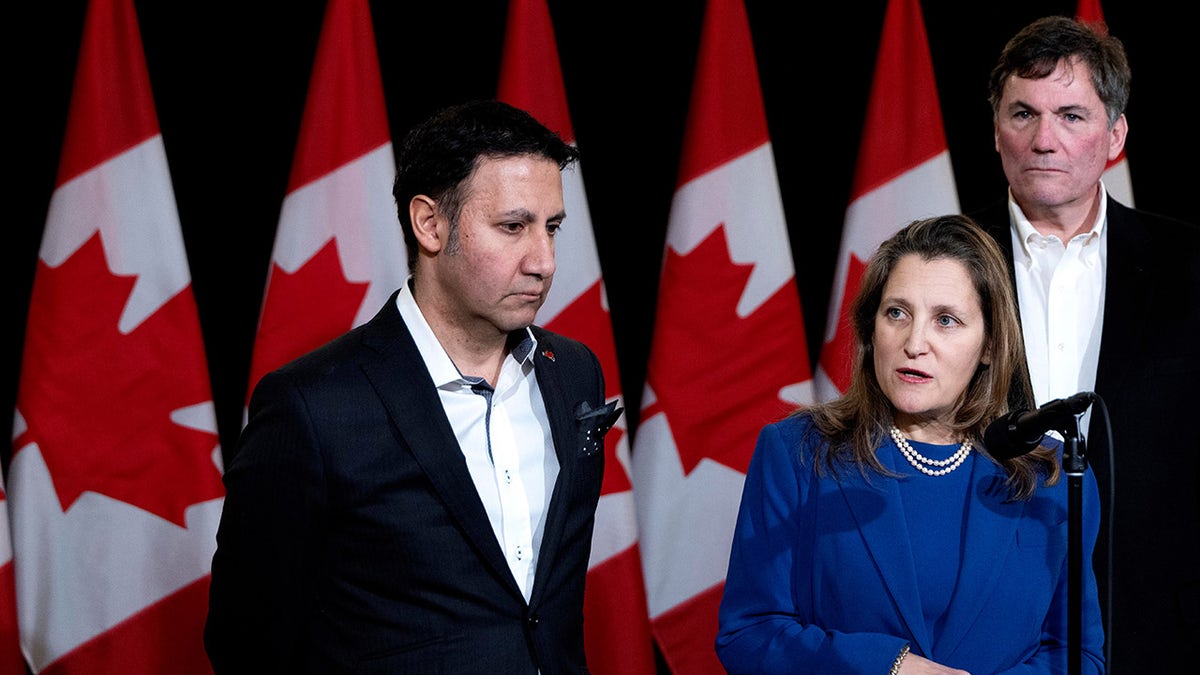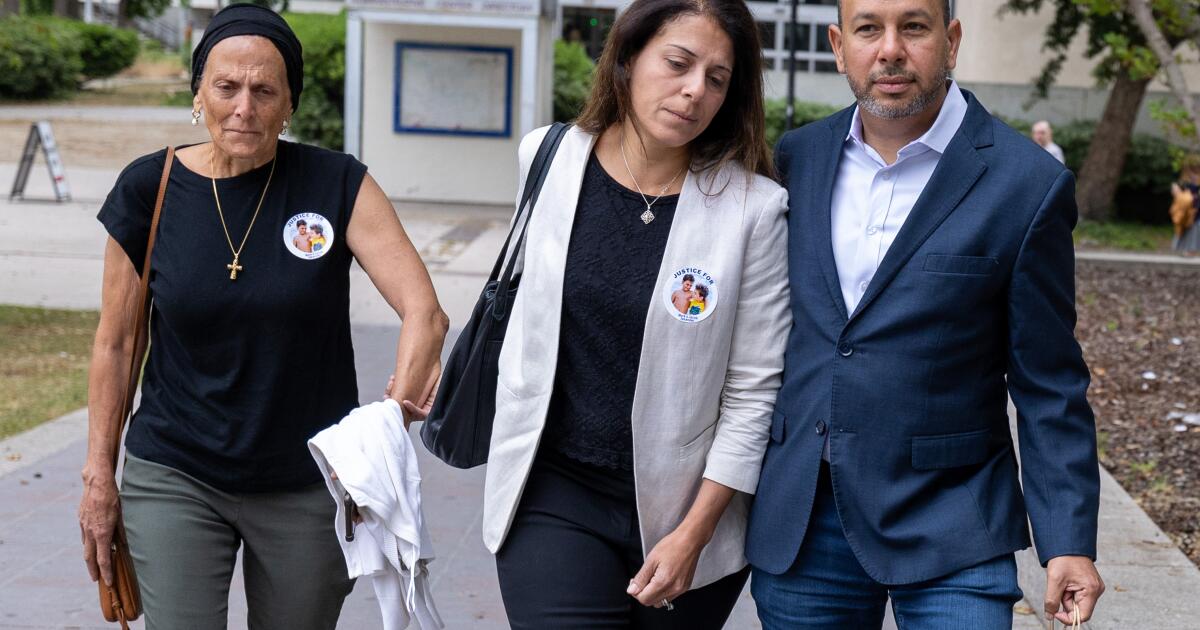Canadian Prime Minister Justin Trudeau On Monday, bowing to opposition pressure, the government decided to hold a public inquiry into allegations that some MPs and senators deliberately conspired with foreign adversaries, including China and India, to influence domestic elections and politics.
After reviewing 4,000 classified documents and 1,000 testimonies, Congress’ National Security and Intelligence Committee (NSICOP) released a special report last week claiming that unnamed federal-level elected officials “have been, in the words of the intelligence services, ‘semi-deliberate or deliberate’ participants in foreign states’ efforts to interfere in our politics.”
Trudeau was asked about the report at a press conference in Quebec City on Monday.
A journalist asked, “Mr. Trudeau, have you seen the NSICOP report? Do you think the allegations in it rise to the level of treason?”

Canadian Prime Minister Justin Trudeau speaks during a Liberal Party of Canada fundraising event in Ottawa, Ontario, Monday, June 10, 2024. (Spencer Colby/The Canadian Press via AP)
Trudeau responded: “I think it’s extremely important that we continue to take foreign interference with the utmost seriousness, which is why we will support the Bloc Québécois motion to refer the report and the concerns raised in it to commissioner (Marie-Josée) Hogg, to ensure that there is a clear process in place so that Canadians can have confidence in the integrity of democracy.”
Conservative leader Pierre Poilievre called for Trudeau’s Liberal Government to name the MPs referenced in the revised report, but Public Security Minister Dominic LeBlanc said doing so would be against the law. LeBlanc said, however, he agrees with the expanded public inquiry sought by the Bloc Québécois.
The Bloc Québécois introduced a motion to broaden the scope of the Hogg Commission, which has been investigating foreign interference and election meddling since September, to investigate “MPs who may have voluntarily or involuntarily worked in the interests of foreign powers.” Trudeau first tasked Justice Marie-Josée Hogg to lead the commission last year after allegations arose that the Chinese government organized voters against a Conservative candidate in Western Canada and helped elect another candidate as a Liberal in the Toronto area, Politico reported.
“Some members of this House have acted in the best interests of hostile foreign governments that interfere with Canada’s democracy. This is a despicable betrayal of the Canadians who elected us,” Conservative Party MLA Jasraj Singh Halan said in the House of Commons on Monday, according to Reuters.
“It is unacceptable that MPs or senators, whether with or without their knowledge, can serve as intermediaries for foreign powers hostile to our democracy,” Bloc Québécois ethics spokesperson René Villemure said in a statement.

Conservative Party of Canada Leader Pierre Poilievre during the Canada Strong and Free networking conference in Ottawa on April 11, 2024. (David Kawai/Bloomberg via Getty Images)
However, it is unclear whether criminal charges will be filed based on the report.
At a second press conference on Monday, Trudeau took the opportunity to denounce the victories of conservative and right-wing parties in France and elsewhere following European Parliament elections. European voters overwhelmingly rejected socialism and left-wing policies in Sunday’s polls.
“We’ve seen the rise of populist right-wing forces in almost every democracy around the world. And it’s worrying to see political parties choose to use anger, fear, division, anxiety as a tool,” Trudeau said. “My approach has always been to respond to it. Understand it and address it. Roll up your sleeves, work hard and with ambition for this country and our future. And I’m still convinced that Canadians are thoughtful about the challenges we face and are prepared to see them solved, rather than allowing themselves to let their anger grow without any solutions.”
The special report on “Foreign Interference in Canada’s Democratic Processes and Institutions” was released by NSICOP on June 3. Its findings include that the Canadian Security Intelligence Service (CSIS) and the Communications Security Establishment (CSE) “produced a body of intelligence that revealed that foreign actors used deceptive and covert methods to build relationships with Canadians they believed would be useful in advancing their interests – particularly with Members of Parliament and Senators – in order to induce Canadians to act in favour of the foreign actor and against Canadian interests.”
Amid migrant surge, Canada’s Trudeau says there’s a need to get immigration ‘under control’
While in some cases, “MPs were not aware they were targets of foreign interference,” the report noted how “some elected officials, however, began knowingly assisting foreign state actors soon after their election.” The report was edited to remove “damning or privileged information,” but it does point out that “there are examples of Members of Parliament who worked to influence their colleagues on behalf of India and actively provided confidential information to Indian officials.”
Without naming the MP, the edited report cited another “textbook example” of foreign interference, in which a foreign state deliberately supported a politician.
The special report said Canada’s intelligence agency “provided specific intelligence to secret-cleared representatives of the party shortly before the election and to the prime minister shortly thereafter” and that Trudeau “discussed the incident with the committee and described the steps taken in response to the intelligence reporting,” but redacted details.

Canada’s Justice Minister Arif Virani, left, Deputy Prime Minister and Finance Minister Chrystia Freeland, and Public Safety Minister Dominic LeBlanc, in Montreal on January 23, 2024. (Alan MacInnis/Bloomberg via Getty Images)
People’s Republic of China The US remains “the biggest foreign interference threat to Canada”, but since 2019, the committee assessed, Russia, which once ranked second, has focused its strategic priorities elsewhere, while India has emerged as “the second most significant foreign interference threat to Canada’s democratic institutions and processes”.
“China’s foreign interference efforts remain sophisticated, persistent and multifaceted, targeting all orders of the Canadian government and multiple aspects of society and relying on a multiple method,” the report said.
CSIS assessed that the Chinese government “believes that its relationships with certain Members of Parliament are based on a quid pro quo that any Member’s association with the PRC will result in the PRC mobilizing its networks in favor of that Member.” The report states that the PRC will “show support to MPs from areas with large numbers of ethnic Chinese voters and who have close ties to the Chinese ethnic cultural community, including Chinese leaders and business people.”
Click here to get the Fox News app
“During the period under review, intelligence reporting from CSIS and CSE revealed that foreign states attempted to covertly purchase influence over candidates and elected officials,” the report said.
It also said the PRC “had used intermediaries to provide funds to support candidates in the 2019 federal election, including two transfers of funds totaling approximately $250,000 through a prominent community leader, a political staffer, and then an Ontario Member of Provincial Parliament,” but the report added that “CSIS could not confirm that the funds reached any candidates.”
The report also removed the statement that “CSIS reported that an Indian representative claimed to have repeatedly transferred funds from India to politicians at all levels of government in exchange for political favors, including raising issues in Parliament at the representative’s request.”
















